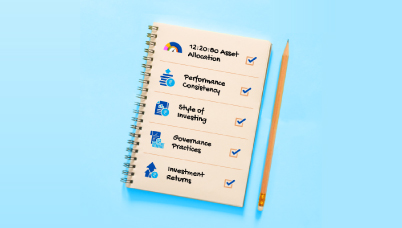GST - To Be or Not To Be
Posted On Wednesday, Jul 20, 2016
This monsoon session of parliament will go on from July 18th 2016 to August 20th 2016, during which we hope to see the biggest tax reform in a decade – the GST to pass. Already dominating the headlines, the GST has been hailed as is one of the most awaited reforms that could help streamline the taxes that we pay on goods and services.
Before discussing the GST Bill, let’s take a quick look on what GST is all about and the impact it can have on your investments.
The all-encompassing Goods and Services Tax (GST)
In very broad terms, we in India pay taxes to the Government in two forms – Direct and Indirect. Direct taxes are simple; they are collected directly from those who are liable to pay it. The common examples are Income tax, Property tax, and Gift tax.
On the other hand, in indirect taxes the money is collected and paid by somebody other than the person liable to pay them. Some of the important indirect taxes are Customs Duty, Excise Duty, Sales Tax, VAT, Service Tax, and STT. Currently, the indirect tax system in India is quite complicated. The Central and State Governments levy taxes separately, resulting in overlaps.
The newly conceived framework of the GST will replace these indirect taxes. GST will have a 'dual' structure, which means it will have two main components- Central GST and State GST. There will also be a third component called integrated GST to tackle inter-state transactions.
Experts expect that GST will lead to a unified tax market, improvement in tax collection and a broadened tax base. Firstly it will help in easy transportation of goods. Currently, each state has checkpoint for entry of goods. It is as if every state is a different country, GST will smoothen the flow. It will reduce the logistics cost for companies. Secondly, the tax rates can be lower for some products as there is a lower single tax structure under GST. Currently, there is a 2-tier structure with both States and Centre levying tax. For example, the automobile industry is talked as a beneficiary of GST as the proposed tax is lower.
Thirdly, GST will benefit by widening the tax base. Many who are excluded currently will pay tax based on value addition. It will bring a climate of improved tax compliance.
Getting GST rolling
This time around the Government is hopeful of introducing GST before 2016 ends, hence the grand push during the monsoon session of parliament. When the GST law is enacted it will require the creation of the GST Network, an IT backbone of GST, which will facilitate online registration, tax payment and return filing. But before that the Bill needs to be passed in both houses of the Parliament. Thereafter it needs to be ratified by a minimum of 15 States in their respective assemblies before the President can give his assent for its enactment.
However unlike other tax changes, the introduction of GST is far more complicated. It requires re-writing certain parts of the Indian Constitution.
Clearing roadblocks for GST
So why does introduction of GST require a Constitutional Amendment?
You see, the Constitution lays out the distribution of power to tax between the Centre and States. While the Centre is empowered to tax services and goods up to the production stage, only the States have the power to tax sale of goods. Moreover, the States are not empowered to impose tax on imports. Therefore, it is essential to have Constitutional Amendments for empowering both the Central and State Governments to levy tax on the ‘supply of goods and services’ and tax on imports, other important issues.
Lok Sabha, the lower house of the Parliament, passed the Constitutional Amendment Bill in May 2015. So now the ball is in the upper house, the Rajya Sabha, which will witness the passing the constitutional amendment.
GST and the stock markets
If things work out in this monsoon session of the Parliament and GST begins to roll, it would certainly be something the markets would cheer.
However for companies to actually start benefitting from it will take considerable time, in a complex economy like India. That said making GST happen will send the important message out to the world that policy makers in India are serious about economic reforms. To that end GST certainly is a step in the right direction, and is to be lauded.
Disclaimer, Statutory Details & Risk Factors:
The views expressed here in this article are for general information and reading purpose only and do not constitute any guidelines and recommendations on any course of action to be followed by the reader. The views are not meant to serve as a professional guide / investment advice / intended to be an offer or solicitation for the purchase or sale of any financial product or instrument or mutual fund units for the reader. The article has been prepared on the basis of publicly available information, internally developed data and other sources believed to be reliable. Whilst no action has been solicited based upon the information provided herein, due care has been taken to ensure that the facts are accurate and views given are fair and reasonable as on date. Readers of this article should rely on information/data arising out of their own investigations and advised to seek independent professional advice and arrive at an informed decision before making any investments.
Mutual fund investments are subject to market risks read all scheme related documents carefully.
Please visit – www.QuantumMF.com to read scheme specific risk factors. Investors in the Scheme(s) are not being offered a guaranteed or assured rate of return and there can be no assurance that the schemes objective will be achieved and the NAV of the scheme(s) may go up and down depending upon the factors and forces affecting securities market. Investment in mutual fund units involves investment risk such as trading volumes, settlement risk, liquidity risk, default risk including possible loss of capital. Past performance of the sponsor / AMC / Mutual Fund does not indicate the future performance of the Scheme(s). Statutory Details: Quantum Mutual Fund (the Fund) has been constituted as a Trust under the Indian Trusts Act, 1882. Sponsor: Quantum Advisors Private Limited. (liability of Sponsor limited to Rs. 1,00,000/-) Trustee: Quantum Trustee Company Private Limited. Investment Manager: Quantum Asset Management Company Private Limited. The Sponsor, Trustee and Investment Manager are incorporated under the Companies Act, 1956.
Related Posts
-

Do You Need to Update Your KYC/Modify KYC?
Posted On Friday, Apr 26, 2024
New KYC Regulation Effective April 1st 2024
Read More -

Are You Stuck in the Past or Ready for a Secure Future?
Posted On Wednesday, Jun 29, 2022
The ever-growing number of mutual fund schemes on offer has made it challenging for investors to select the best and most suitable one.
Read More -

Received an Increment? Step-up Your SIPs
Posted On Wednesday, Jun 01, 2022
For instance, let’s assume that you have registered for a monthly SIP of Rs 5,000 for a 10-year period and later on try to step-up the SIP at an annual frequency, say by Rs 500. In the first year...
Read More



